-
NOVEMBER 22
1865—The Mississippi legislature enacts the first “Black Codes” aimed at controlling the former slaves. These laws, many of which other Southern states adopted, were so restrictive that they amounted to the re-enslavement of Blacks. In line with the view that much of racism has an economic basis, Blacks were specifically banned from owning farmland. Some of the “Black Codes” were eliminated during Reconstruction, but many actually remained on the law books until the Civil Rights Movement of the 1960s.

1884—Militant Black journalist and rights advocate T. Thomas Fortune starts the New York Freeman, which later became the New York Age. He was born in Mariana, Fla., in 1856 and died in Philadelphia, Pa., in 1928. Fortune was easily one of the most driven and influential Black journalists in American history.

1884—The Philadelphia Tribune is founded by Christopher J. Perry.
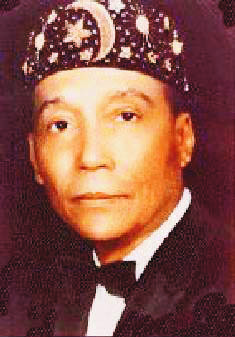
1930—The Nation of Islam is founded in Detroit, Mich. A lot of controversy surrounds the founding. But the general view is that the NOI was founded by Wallace Fard Muhammad and Elijah Muhammad was his immediate successor. The Nation of Islam reached its height during the days of Min. Malcolm X advocating self-respect and economic development. It is currently headed by Min. Louis Farrakhan.

1963—The 35th president of the United States John F. Kennedy is assassinated in Dallas, Texas, sending shock waves throughout the nation and the world. Black Americans were especially hard hit because many had come to view Kennedy as the first modern anti-racist, pro-Black president. Conspiracy theories still abound which reject the official version of who killed him and why.
-
NOVEMBER 23
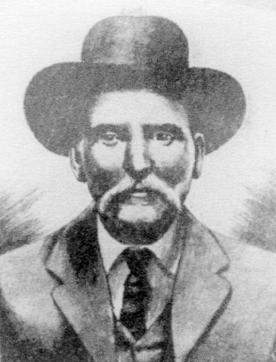
1897—Self-educated engineer Andrew J. Beard is awarded a patent (#594,059) for an automatic railroad car coupling device—the Jenny Coupler. Prior to this device rail cars were joined manually and hundreds of workers lost fingers, hands and arms. Beard eventually sold rights to his invention for $50,000.
1980—More than 1,000 Blacks from 25 states gathered in Philadelphia, Pa., and formed the National Black Independent Political Party. However, the lack of funding and Black voter allegiance to the Democratic Party doomed the effort.
-
NOVEMBER 24
1865—Mississippi enacts another set of “Black Codes” designed to control and virtually re-enslave the recently freed slaves. The racist laws made it illegal for Blacks to be called for jury duty, testify against a White person in court, own guns, attend White schools, or own farmland. Several other Southern states immediately attempted to imitate the Mississippi laws. Reconstruction slowed the implementation of the “Black Codes.” But when Reconstruction ended around 1877, the codes were re-instituted.
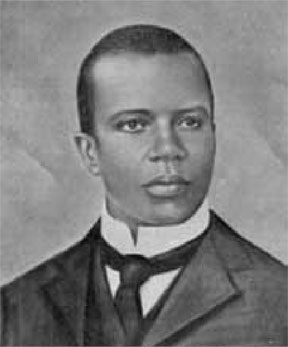
1868—Scott Joplin is born in Texarkana, Texas. Joplin becomes skilled at the piano and with composing music. As a result of these skills and his energy, he becomes one of the leading founders of a music genre known as “Ragtime,” which was one of the most popular types of music in America for at least 20 years. The most popular “Ragtime” tune was Joplin’s “Maple Leaf Rag” of 1897. Sadly, the talented Joplin died in a New York City asylum at the age of 49.
-
NOVEMBER 25
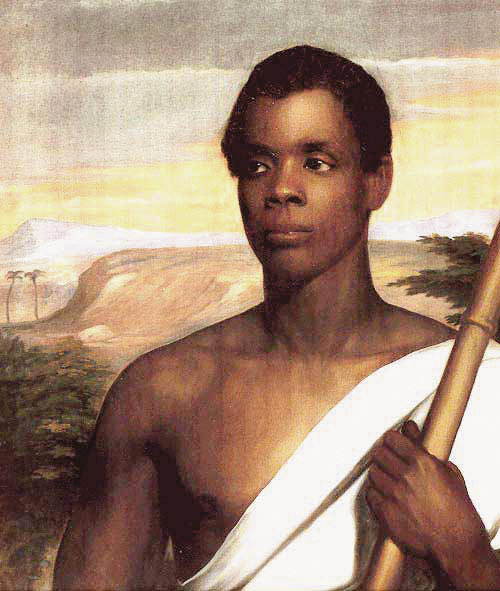
1841—The 35 survivors of the Amistad Mutiny return to Africa. On July 2, 1839, slaves, led by Joseph Cinque, killed the captain of the Cuban slave ship Amistad, took control and ordered the crew to sail back to Africa. The ship, however, was seized by a U.S. ship. The government wanted to try the slaves for murder. None other than former President John Quincy Adams decided to represent the rebel Blacks. In a surprise decision for its time, a judge ruled that the slaves had been kidnapped and had a right to use violence to free themselves. On this day in 1841, the survivors were allowed to return to Africa.

1949—Luther “Bill” (Bojangles) Robinson dies in New York City. The famed dancer was born on May 25, 1878 in Richmond, Va. Initially, he gained fame on the nightclub circuit performing in musical comedies. Later, he became the toast of Broadway and then Hollywood appearing in 14 motion pictures. He is credited with taking an early style of Black dance called “buck dancing” and turning it into what we know today as tap dancing. Amazingly, the energetic Robinson died of a chronic heart condition.
1955—The Interstate Commerce Commission bans segregation on buses and in waiting rooms involved in interstate travel.
-
NOVEMBER 26
1873—Macon B. Allen is elected a judge in Charleston, S.C. Allen holds the distinction of being America’s first Black lawyer having been admitted to the bar in Massachusetts on March 5, 1845. During Reconstruction he decided to aid the former slaves in the South by moving to South Carolina and running for judge.
1883—Sojourner Truth dies at her home in Battle Creek, Mich. Truth was a major figure in the abolition movement fighting long and hard to bring an end to the dreaded institution. After slavery, she became a major voice for Black rights and women’s right to vote.
1895—The National Negro Medical Association is founded. It is now called the National Medical Association and has a membership including 25,000 doctors and health care providers.

1938—Grammy Award-winning singer Tina Turner is born Annie Mae Bullock in Nutbush, Tenn. She (along with her husband, Ike) reaches stardom among R&B music lovers. But after a divorce, she restyles herself and captures an even broader audience.
1970—Benjamin O. Davis Sr., the nation’s first Black general, dies at his home in Chicago.
1970—Charles Gordone receives the Pulitzer Prize for his play “No Place To Be Somebody.”
-
NOVEMBER 27
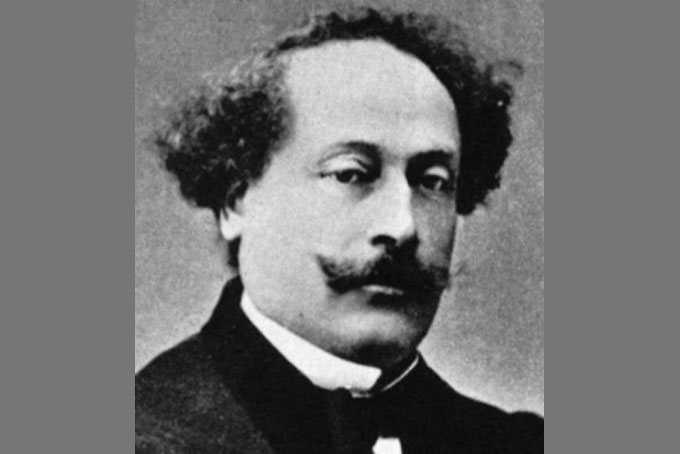
1895—Novelist and playwright Alexandre Dumas [Jr. or fils] dies in France. He was the son of the much more famous Alexandre Dumas [Sr.] who authored such works as “The Three Musketeers” and “The Count De Monte Cristo.” However, “junior” was also an accomplished novelist with his most famous work being “La Dame Aux Camelias.” When confronted with French racism, Dumas is frequently quoted as telling his detractors, “My father was a Creole, his father a Negro, and his father a monkey. My family, it seems, begins where yours left off.”

1942—Rock musician Jimi Hendrix is born in Seattle, Wash. Hendrix is considered one of the greatest guitarists to have ever played. Unfortunately, he died of a drug overdose while on tour in Europe.
-
NOVEMBER 28
1753—Revolutionary War soldier James Robinson is born in Maryland. Historically, like “40 acres and a mule,” Robinson epitomizes the White man’s false promises to the Black man. Robinson, a slave, was promised his freedom for fighting in America’s War of Independence from Britain. He fought so well that he won a medal for bravery at the Battle of Yorktown. However, after the war he was sold back into slavery. But he did live to see the end of slavery. He died in Detroit, Mich., in 1868.
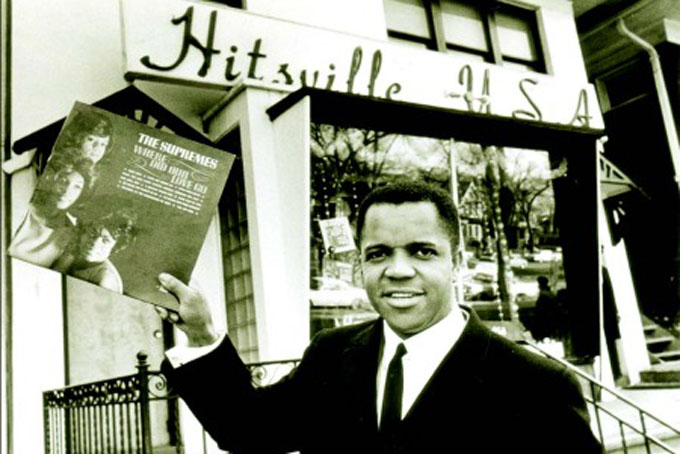
1929—Berry Gordy is born in Detroit, Mich. He founded Motown Records in 1957 and built it into the greatest Black-owned record company in U.S. history. It was later sold to a major White-owned corporation and is now based in Los Angeles, Calif.

1960—Richard Wright, perhaps Black America’s greatest novelist, dies in Paris, France. He was only 52. Wright’s best known works included “Native Son,” “Black Power” and “Black Boy.” Wright’s opposition to American racism led him to join the communist party. He later quit. But he refused to return to America in 1952 as the country was going through an anti-communist witch hunt.
1961—Ernie Davis becomes the first Black man to win college football’s prestigious Heisman Trophy.
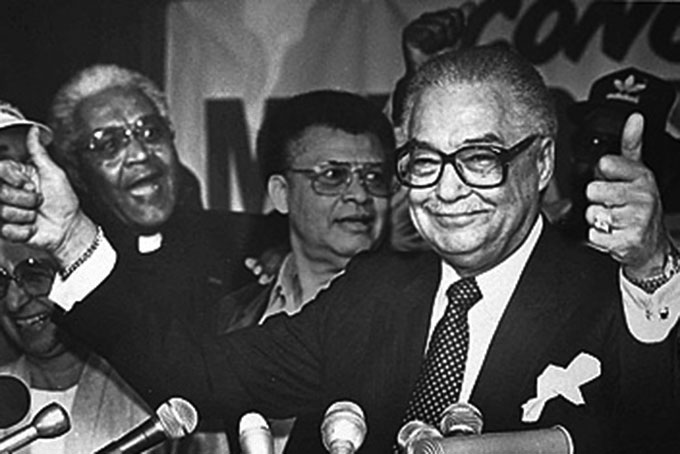
1997—Coleman Young, Detroit’s first Black mayor, dies at 79. He presided over his adopted city for an unprecedented five terms.